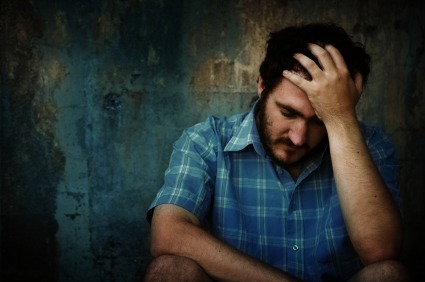Why Men Commit Suicide More Than Women: The Silent Struggles
Suicide has become one of the most pressing public health concerns of our time. While the issue affects both men and women, statistics show that men are far more likely to die by suicide than women. The reasons behind this stark reality are multifaceted and often rooted in the unspoken struggles that men face.
IN BRIEF
Thinkbrief
7/23/20253 min read


Suicide has become one of the most pressing public health concerns of our time. While the issue affects both men and women, statistics show that men are far more likely to die by suicide than women. The reasons behind this stark reality are multifaceted and often rooted in the unspoken struggles that men face. Society tends to paint a picture of men as strong resilient figures who have it all together, but the truth is far from this idealized image. Beneath the surface many men are battling with feelings of loneliness, hopelessness, and the pressure of an unrelenting world that expects them to be the unwavering pillars of their families. In many ways, the inability to express vulnerability or ask for help creates a deep sense of isolation. This isolation, left unchecked, can spiral into feelings of despair that often lead to tragic outcomes.
Men often find themselves trapped in a cycle where the expectation to be “tough” or “stoic” overrides the need for emotional expression. From a young age, boys are taught that crying is a weakness and that showing emotion makes them less of a man. These societal messages, reinforced by family and peers, create a dangerous environment where men are more likely to suppress their feelings rather than confront them. This internalized pressure is made worse by the stigma surrounding mental health. For many men, asking for help is seen as a failure or as an admission of weakness, which only compounds the stress they are under. The constant need to appear strong on the outside means that emotional suffering goes unacknowledged until it becomes unbearable. The painful truth is that many men do not recognize the signs of depression or anxiety within themselves until it is too late. And when they do, they often don’t know where to turn or how to express the depth of their pain.
Another reason why men are at greater risk of suicide lies in their approach to coping with emotional pain. Men are more likely to turn to substances like alcohol or drugs as a way of dealing with stress. These coping mechanisms may offer temporary relief but ultimately exacerbate the problem, numbing the emotional pain without addressing its underlying causes. In many cases, this cycle of substance abuse, combined with a lack of support, leads to an increased risk of self-harm. Unlike women who are often more likely to seek out social support networks, men tend to isolate themselves during moments of crisis. They may not reach out to friends or family for help, either because they fear judgment or because they feel ashamed of their emotional struggles. The result is a dangerous buildup of emotional and psychological pressure that can feel insurmountable. For some men, this pressure becomes too much to bear and they make the irreversible decision to take their own lives. The methods they choose are often more violent and lethal, making suicide far more likely to succeed than it might for women. While women may attempt suicide more frequently, men’s methods are more fatal, and this is a direct reflection of the profound depth of their emotional pain.
In the shadows of their struggles, men often fight a battle that is invisible to those around them. The combination of societal expectations, emotional isolation, and unhealthy coping mechanisms creates a perfect storm that increases the risk of suicide. This is not just a problem of mental illness but a cultural issue that needs urgent attention. As a society, we must begin to unravel the rigid gender norms that discourage men from being open about their emotions and their mental health. Until we start encouraging men to seek help, to be vulnerable, and to talk about their feelings, the number of men who die by suicide will continue to rise. It is time to create a world where men can show their pain without fear of judgment and where seeking help is seen as a sign of strength rather than weakness.